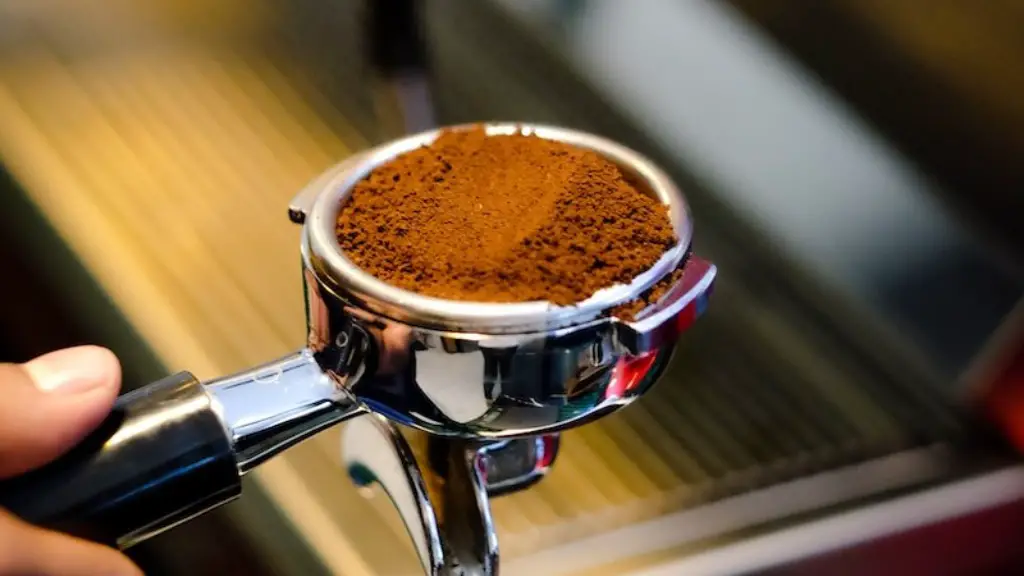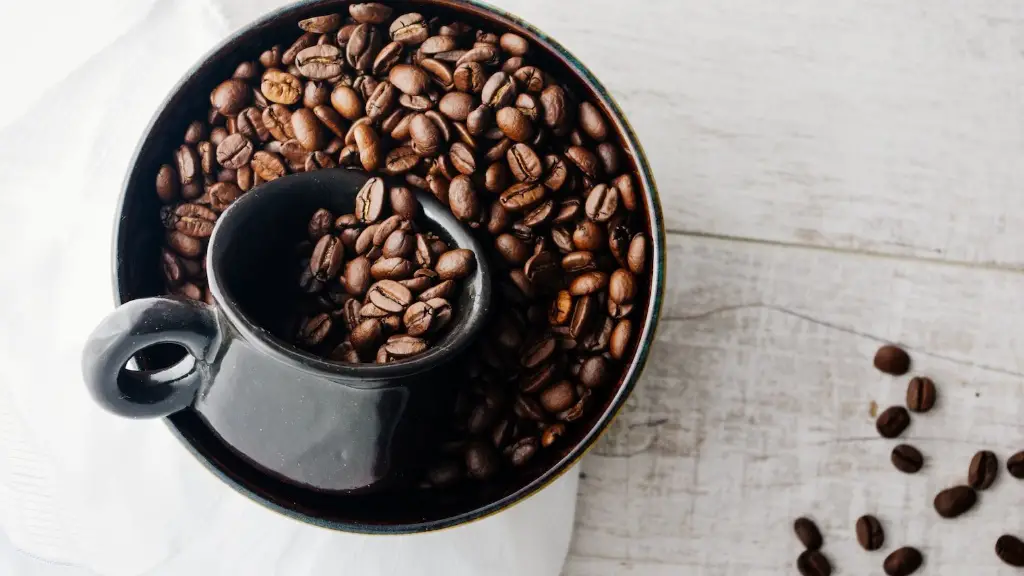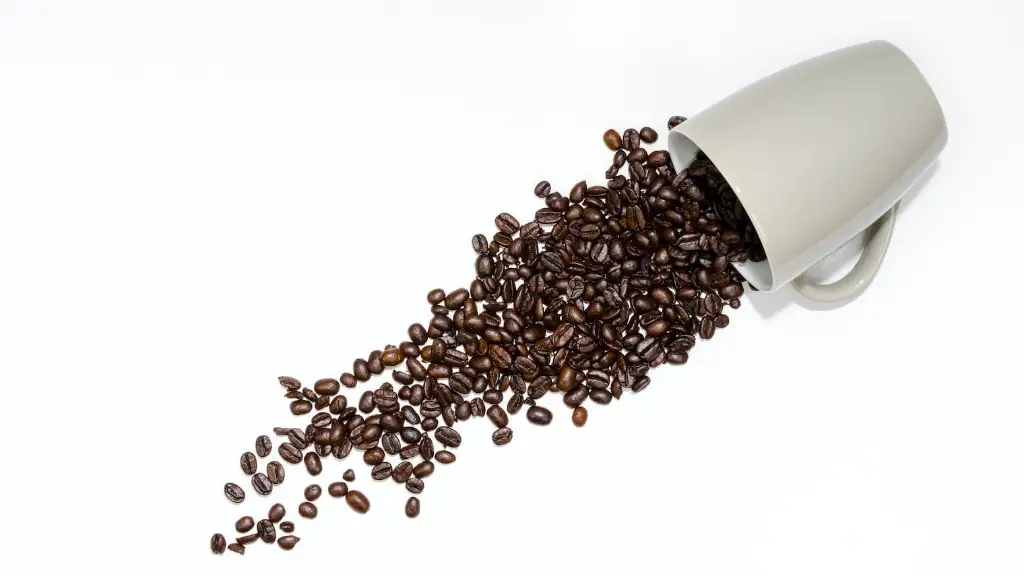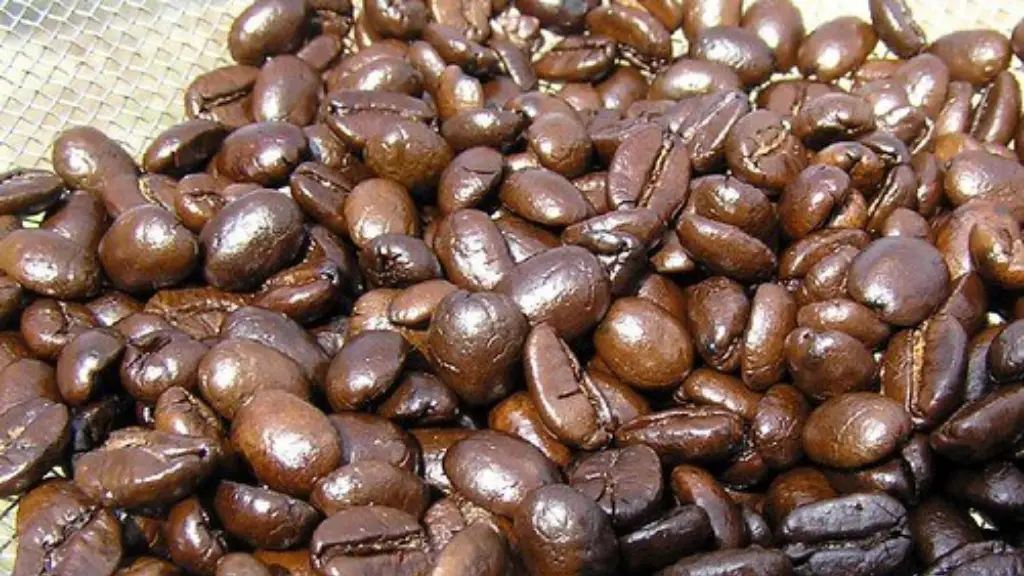For a fitness enthusiast, the question of whether it is okay to work out after drinking coffee is an important one. How a person perceives caffeine and how it affects their body differs from individual to individual. But research has been done looking at the effects of drinking coffee and working out, and there is evidence that suggests that it can have a positive or negative effect depending on the context.
Coffee has long been used as a pre-workout drink to increase performance during physical activity. It is estimated that 38 percent of gym-goers consume caffeine products when they exercise. Caffeine helps to increase alertness and reactivity, elevates the heart rate and increases hormones which affect metabolism. It gives people extra energy, improves concentration and reduces fatigue. This can be great for people who are taking part in intense physical activity or doing a really long workout.
On the other hand, some research has suggested that drinking coffee before working out can also have a negative effect. Studies have shown that it can cause dehydration, increased heart rate and increased production of lactic acid in the body, which can lead to muscle fatigue. It can also cause GI issues such as bloating, cramping, and diarrhoea if consumed in large amounts.
The amount of caffeine in coffee varies depending on the type of bean and the amount of time it is left to steep. It’s best to drink coffee with a moderate amount of caffeine and avoid heavily caffeinated drinks. Some people also recommend drinking coffee one hour before physical activity, as it will give you enough time to digest the drink and get the boost it provides.
Experts have suggested that if you do decide to have caffeine before working out, it is important to make sure you are drinking enough water as well. Dehydration is a common side effect of drinking coffee and can be dangerous if you are engaged in physical activity. So, it’s important to replenish the fluids lost and make sure you are hydrated before, during, and after your workout.
At the end of the day, it is important to listen to your body and how it responds to caffeine. Some people may be more sensitive to caffeine than others, so it is always best to start with a small amount and increase gradually. It is also important to make sure you are eating a healthy and balanced diet and getting enough rest. Doing this will help ensure that working out after drinking coffee is not a negative experience.
Effects on Performance
The effects of consuming coffee before physical activity can be both positive and negative depending on the individual. For those looking for a performance boost, it has been shown to be beneficial. Caffeine can improve mental focus and alertness, increase reaction time, extend endurance and improve overall performance.
In terms of physical performance, some studies have suggested that caffeine can increase power output and explosiveness. It can even reduce the amount of fatigue a person feels, allowing them to perform better for longer periods of time. This can be particularly beneficial for high-intensity workouts, such as weightlifting or interval training.
For people who are looking to improve their aerobic performance, caffeine may also be of benefit. Studies have shown that it can help athletes cycle faster and jump higher in a variety of activities. Aside from its performance enhancing effects, caffeine can also have a positive effect on the mind. It can improve focus, alertness, and concentration, enabling athletes to push themselves further.
However, it is important to note that the effects of caffeine can vary greatly from person to person. Everyone has different thresholds for caffeine consumption and this should be taken into account. It is also worth noting that too much caffeine can have the opposite effect and can actually decrease performance. So, it is best to consume coffee in moderation.
Caffeine Half-life
The amount of time it takes for the body to break down and eliminate caffeine from the system is known as its half-life. This can vary from person to person, but generally speaking, it is about six hours for most people. So, for those who are drinking coffee and then working out, it is important to consider the effect this may have.
It is important to note that not everyone has the same tolerance for caffeine. Some may be more sensitive to the effects than others, so it is best to start with a small amount and then go from there. If you are feeling overly stimulated or jittery after a cup of coffee, then you may want to lower the amount of caffeine you consume before working out.
It is also important to remember that it takes about 30 minutes for the body to absorb the caffeine, and then another four to six hours for it to be fully metabolized. So, if you drink coffee one hour before working out, it is likely that there will still be some caffeine in your system by the time you start your workout.
Sleep Quality
It is no secret that working out and coffee drinking can both have an impact on your quality of sleep. For those who are drinking coffee and then working out, it is important to consider the effects this could have on their ability to get a good night’s sleep. Research has shown that caffeine consumption can disrupt the natural rise and fall of melatonin, which is a hormone associated with the circadian rhythm.
Caffeine can also make it harder for people to get to sleep. However, the effects of caffeine vary from person to person. Some individuals may not experience any issues with sleep, while others may feel more alert and have difficulty getting to sleep. So, it is important to consider the effects this could have on the body before making the decision to drink coffee and then work out.
In addition to sleep quality, it is also important to consider the diet when drinking coffee and working out. It is important to get enough nutrients and protein before, during, and after a workout to ensure that you have enough energy and to help with muscle recovery. So, while drinking coffee and working out can have some positive effects, it is important to make sure you are still eating a balanced and nutritious diet.
Overall Health
Overall, the best way to ensure that working out after drinking coffee is not detrimental to your health is to take the right precautions. This includes drinking a moderate amount of coffee, avoiding heavily caffeinated drinks and making sure to drink enough water. Additionally, it is important to get enough sleep and make sure to eat a balanced diet.
It is also worth noting that the amount of caffeine that is appropriate for one person may not be the same for another. So, it is best to start with a small amount and then adjust depending on how your body responds. Lastly, it is important to listen to your body and pay attention to any changes that may occur after drinking coffee and working out.
Risks
Despite the benefits, there are certain risks associated with drinking coffee and working out. As mentioned before, too much caffeine can lead to dehydration and increased heart rate, which can be dangerous when engaging in physical activity. In addition, it can lead to gastric distress, insomnia and other negative side effects.
It is also important to note that the stimulant effects of caffeine can affect the person’s motivation to exercise. For some people, the effects of the caffeine may make them feel jittery or overly stimulated, which can take away from the desired effects of the workout. So, it is important to listen to your body and be aware of how the caffeine is affecting you.
Finally, heavy caffeine consumption can lead to overtraining and exhaustion as it can interfere with the body’s natural ability to recover and heal. This can lead to fatigue, injuries, and a weakened immune system. For this reason, it is important to practice moderation when it comes to drinking coffee and working out.
Conclusion
Ultimately, whether it is okay to work out after drinking coffee depends on various factors such as individual tolerance, amount of caffeine consumed and the type of physical activity being performed. By listening to your body, maintaining a balanced diet and drinking a moderate amount of coffee prior to working out, you can ensure that the benefits outweigh the risks.





